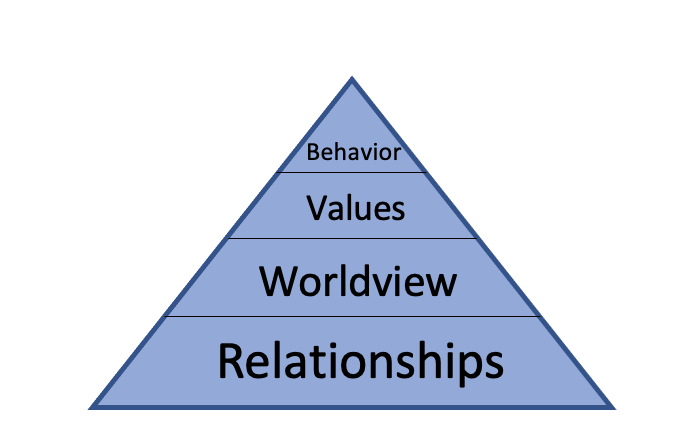Sean McDowell.org
Ravi Zacharias was a hero of mine. Like many other people, I was devastated when the initial investigation confirmed that he engaged in sexual misconduct. And the final report is even more shattering. My heart is broken for the victims, his family, and others affected by this.
Many helpful articles have been written about what we need to learn from this, but for those of us who aim to reach and disciple the next generation, there is one lesson we can’t miss: Worldview training must involve more than equipping the mind.
Correct Thinking Is Not Enough
Ravi undoubtedly grasped a biblical worldview. He could articulate a Christian perspective on suffering, meaning, morality, and a range of other issues with eloquence. If he grasped the Christian worldview with such depth, then why the disconnect in his life?
When I taught the Old Testament to 9th graders, my students often felt the same about Solomon. How could such a wise man make such bad decisions, which ultimately cost his family the throne of Israel? If Solomon knew the truth, why didn’t he live the truth? The reality is that Solomon had wisdom but lacked character.
I didn’t know Ravi personally. As far as I can remember, we only met once about 25 years ago. Thus, I’m sure there are many elements to his story that elude my grasp. And I'm sure more details will continue to emerge. My point is not really about him, but a reflection for those of us who care about reaching and discipling the next generation.
First, worldview training must occur in relationships. After working with young people for over two decades, I am convinced that the Christian worldview is most effectively developed in relationship. Since my dad grew up with a father who was the town drunk, the idea of a Heavenly Father never appealed to him. The shift in his worldview began as he studied Scripture and learned about God’s loving character, but it was solidified when he developed healthy relationships with men who relationally modeled fatherhood to him.
Kids feel increasingly alone today, and they yearn for real relationships. If we want them to develop a Christian worldview, it is vital we help them develop key relationships with God, parents, mentors, and friends. It is not enough to merely engage the mind; biblical truth is meant to be experienced in relationship.
Here is how J. Warner Wallace and I illustrate the development of worldview in So the Next Generation Will Know.

My point is not that it’s impossible to develop a Christian worldview amidst unhealthy relationships. There are always exceptions. Rather, that God has designed us to learn the Christian worldview through relationships. To result in life-change, worldview training ought to move beyond the mind alone, and incorporate the building of healthy relationships with God, others, and oneself.
Second, worldview training must include spiritual rituals. A Christian worldview does not translate to life changed without spiritual practices. As my friend Jonathan Morrow noted in the Barna Gen Z study, “We become what we do.” A person becomes a piano player not merely through mental understanding, but through practice in order to cultivate the necessary skills to play beautiful music.
In the Christian life, spiritual disciplines such as prayer, Scripture reading, solitude, tithing, confession, fasting, and worship are vital to cultivate the character of Christ. Young people need opportunities to practice the Christian faith so they can become the kind of people God has designed them to be. We can’t just think our way into becoming virtuous people. We need to practice certain rituals that help form our desires, loves, and character.
The point is not that we need to teach young people less biblical truth–we need more. We must give young people reasons for the faith and help them think Christianly about all of life. No one did that better than Ravi. But if we want them to become virtuous Christians, we must also help them develop healthy relationships and the rituals to practice their faith.

